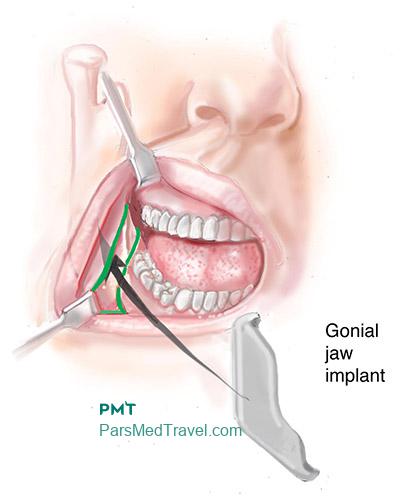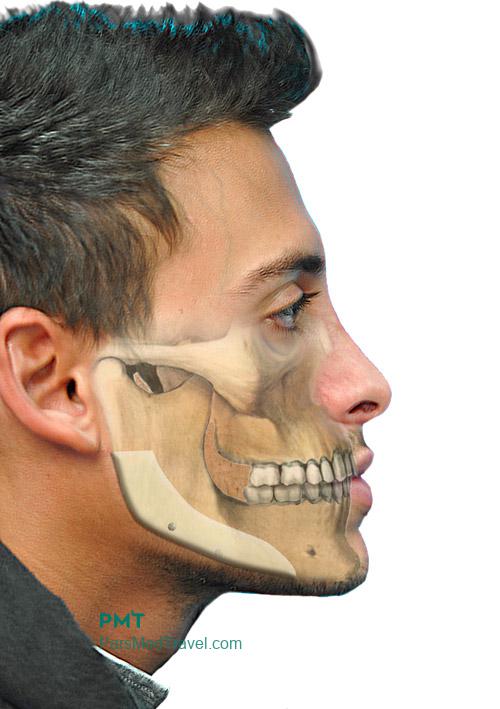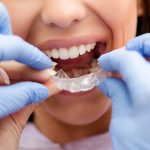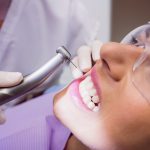With jaw angle prosthesis, the mirror also enjoys watching your beauty
A jaw implant is a surgical procedure in which an implant is placed along the jawline to give a more prominent appearance to the chin and jawline. This cosmetic jaw surgery is a good option for both men and women who feel that their chin is receding or smaller than the rest of their face or that their jaw is not defined. When jaw implant surgery is performed by an experienced plastic surgeon, it can help balance the proportions of all facial features with minimal complications.
How is jaw angle prosthesis performed?
The size and shape of the implant is determined by the surgeon and through photography before the operation. This surgery is performed under anesthesia and takes between 1.5 and 2 hours. Mandibular angle implants are usually inserted through an incision inside the mouth next to the wisdom teeth. Then, through these cuts, they are placed in an envelope created in the tissue. In some cases, a small titanium screw is used to connect the implant to the bone. The incisions are closed using sutures that are later absorbed by the body. At the end of the surgery, a dressing is placed on the skin to reduce swelling.
Advantages of mandibular angle implant
The most important advantages of prosthetic surgery for jaw angulation are:
- Mandibular angle implants can create an angular or more defined appearance in the jaw area of men and women and are customized on computer models to perfectly fit the patient.
- They provide a natural appearance from both the front and side views.
- They are very powerful in creating dramatic changes in the shape of the jaw and the lower third of the face.
- Implants are inserted through the mouth, so you don’t have to worry about scarring.
- Jaw angle prosthesis can reduce discomfort caused by jaw joint disorder.
- The shape of the patient’s jaw will remain constant after the jaw angulation prosthesis when the head and neck rotate in different directions.
- This method can make things like chewing and swallowing easier for the patient.
- The effects of this surgery are long lasting.
What are the risks of jaw angulation prosthesis surgery?
Like any other surgery, jaw angulation prosthetic surgery has possible complications. Infection, asymmetry and patient dissatisfaction are among the most common concerns and risks of this surgery. The risk of infection caused by the angle of the jaw implant is no different from the risk of other facial implants and is very low (1%). Asymmetry can also occur because the mandible itself may be naturally asymmetrical or may have ridges that require filing to achieve a smooth, even surface for implant placement. An experienced facial surgeon knows how to fix these problems when they occur, otherwise prosthetics can exacerbate these issues.
Types of prostheses for the angle of the jaw
Currently, surgeons use two types of prostheses for jaw angulation: polyethylene prostheses (known as Medpur) and silicone prostheses. Silicone and Medpur prostheses are both excellent options for angling the jaw.
- Silicone implants are placed in a pocket inside the cheek, where they are encapsulated and held firmly on top of the bone. These prostheses are softer and cheaper, and it is also possible to move them. Also, these prostheses are gradually absorbed by the underlying bone. The silicone prosthesis can be easily inserted and easily removed if needed. This prosthesis does not need to be screwed.
- Medpur prosthesis has a wide variety of sizes and shapes, and it is possible to cut it specifically for each patient. Inserting and removing Medpor is more complicated. The Medpur prosthesis is not moved and absorbed by the underlying bone, but is directly screwed into the lower jaw and gradually merges with the surrounding bones. That is why it is difficult to remove.
Preparing for jaw angle prosthesis surgery
There are steps you can take before your chin prosthesis to make sure it goes as smoothly as possible. Pay attention to the following:
- Do not smoke at least two weeks before the operation and two weeks after.
- Avoid taking blood thinners including ibuprofen and some herbal supplements.
- Do not go to work and take time off for at least one week after surgery.
- After the surgery and at least in the first few days, it is necessary to have someone with you.
- It is better to see your general practitioner before surgery to make sure that you are in good health and that your body can tolerate this surgery.
- Talk to the surgeon about all your concerns and look at before and after pictures to make sure you have realistic expectations from the surgery.
- Ask about the experience and reputation of your surgeon.








